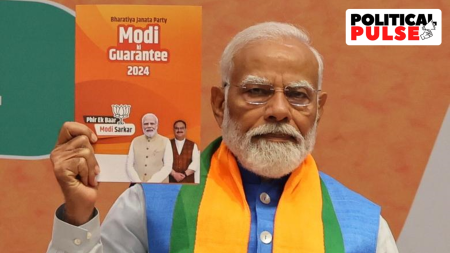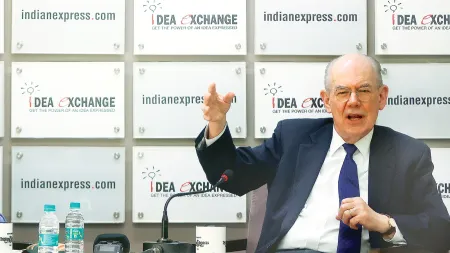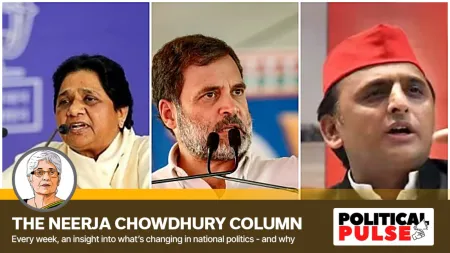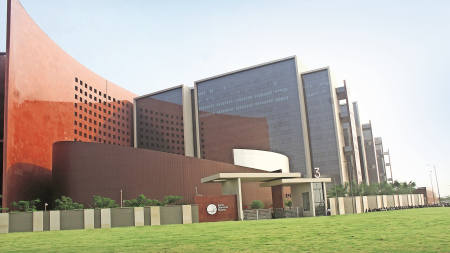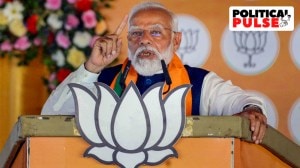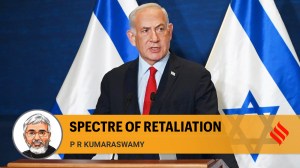- India
- International
Do we need a parliament?
PM Modi’s style of engagment undermines the relevance of legislative oversight.
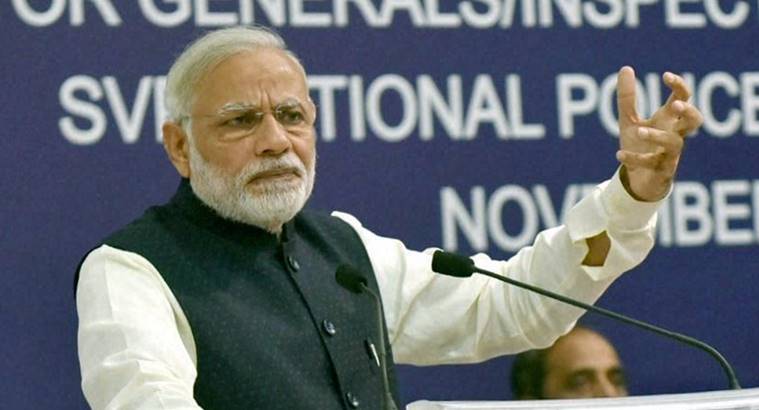 Prime Minister Narendra Modi. PTI Photo
Prime Minister Narendra Modi. PTI Photo
It will be recalled that during Atal Bihari Vajpayee’s premiership, a committee was set up to review the Constitution of India. It was commonly understood that that the political right-wing was of the view that the parliamentary form of government had proved itself inimical to the purposes both of national unity and rapid economic development, and that it was time to institute a more centralised presidential form of governance, top down.
In all likelihood, the weight of general opinion proved too unprepared for such a drastic transformation in the systemic arrangements of India’s constitutional life and history, and the committee did not come to much.
The overriding national commitment to the parliamentary form of governance in India, underwritten by India’s unparalleled diversity in cultural and local imperatives seemed piquantly and, to many, surprisingly reiterated when after the election results of 2014, Prime Minister Narendra Modi — in an iconic gesture full of semiotic symbolism — visited the houses of Parliament to pay a kneeling obeisance to the “temple of democracy”. Many who had speculated that India’s federal structure might come under greater strain under a Modi dispensation than it was eventually under a Vajpayee one stood reassured that Modi’s commitment to Parliament was, if anything, far more demonstratively devotional.
Over time, however, this devotion seems to have suffered some debilitation. Modi has shown a distinct preference for communicating directly to the nation in a format where conversation or questioning is excluded. This rather Bonapartist or Peronist political leadership style naturally finds Parliament an irritating and cacophonous forum where anybody might exercise the Constitutional right to query the chief executive of the country. Thus, even when a parliament session might be on, the executive shows only a proforma and perfunctory willingness, at reduced levels, to answer to points of concern however crucial and widespread these might be to the life of the nation.
It is to be noted that a new generation of Indians, post the neo-liberal opening up of the economy after the embrace of the Washington Consensus in 1990, have like their peers in other countries, shown a marked impatience with representative democratic processes. This new aspirational class of Indians can thus be seen to be vocally favourable to tendencies which mean to centralise political power in order to facilitate a greater and smoother centralisation of the productive life of the country, away from structures of democratic scrutiny and interrogation.

Thus, in the current imbroglio about the decision to render some 86 per cent of the nation’s active currency defunct, Modi chose not to leave the announcement to the Reserve Bank of India but took it upon himself to use prime time television to make the declaration. Even more significantly, as we write, the demands raised by a united Opposition in Parliament notwithstanding — that the prime minister sit through the debate on the issue, having made the declaration in person, Modi has thus far chosen to disregard this constitutional propriety, if not imperative, and to make a direct reference to those who follow his twitter account about the rightness or not of the decision to demonetise.
This latter move then must raise the question whether Parliament has a key constitutional role or not in supervising the executive branch of the state. The other very disquieting aspect of the current logjam is the rhetoric unleashed by the right-wing outside and inside Parliament which seeks, ab initio and ipso facto to dub all sceptical voices, including those of the elected representatives of the people, as driven, not even allegedly, by their support for corrupt systems and practices.
A truly momentous inflection point is thus before the nation: Should Parliament be respected and strengthened, or should it be rendered defunct even as it exists on paper? And, if indeed a Peronist form of governance is to be emulated, should that be done after due structural transformation authorised by constitutional mechanisms or should it be made a reality without such authorisation as a fait accompli?
40 Years Ago
EXPRESS OPINION
More Explained
Apr 16: Latest News
- 01
- 02
- 03
- 04
- 05




